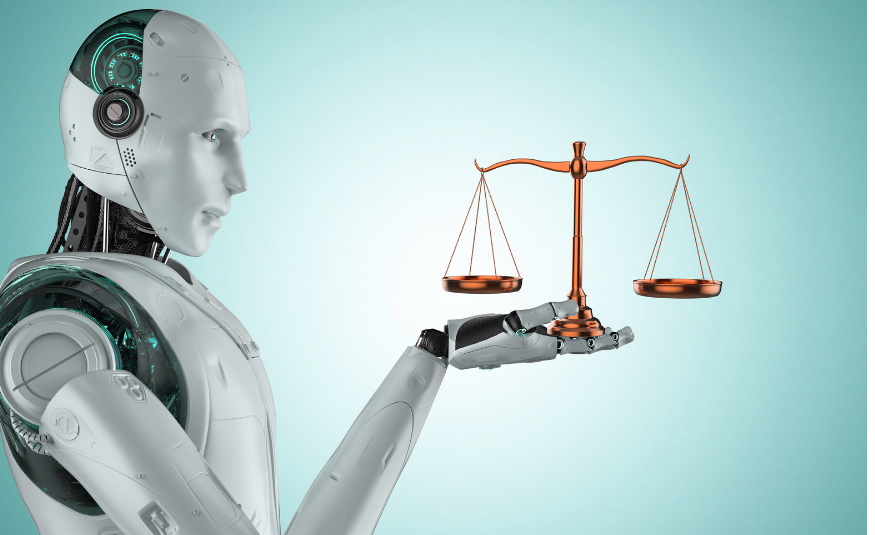Legal Implications of Artificial Intelligence

Artificial Intelligence (AI) has rapidly evolved, transforming industries and our lives. From autonomous vehicles to virtual assistants, AI technologies are reshaping the landscape. However, with this innovation comes myriad legal implications that demand attention.
Contents
- 1 The Power and Responsibility of AI
- 2 Intellectual Property and AI
- 3 Privacy Concerns in AI
- 4 Liability for AI-Generated Actions
- 5 Bias and Discrimination in AI
- 6 Transparency and Explainability in AI Decisions
- 7 International Regulations on AI
- 8 Industry-Specific Regulations
- 9 AI in Criminal Justice
- 10 Emerging Legal Trends in AI
- 11 Preparing for the Future of AI Law
- 12 Public Perception and AI Legislation
- 13 Ethical Considerations in AI Law
- 14 Conclusion
- 15 FAQs(Legal Implications of Artificial Intelligence)
The Power and Responsibility of AI
As AI systems increasingly make decisions impacting various aspects of life, the question of responsibility becomes paramount. Legal considerations must address both the power wielded by AI and the responsibility of those developing and using it.
Intellectual Property and AI
The intersection of AI and intellectual property introduces unique challenges. Issues such as AI-generated content and copyright and the granting of trademarks and patents require careful legal scrutiny.
Privacy Concerns in AI
AI systems’ collection and utilization of personal data pose significant privacy concerns. Legal frameworks and regulations must evolve to safeguard individuals from potential misuse of their information.
Liability for AI-Generated Actions
AI accidents, though rare, can have severe consequences. Determining accountability for these actions is a legal challenge that must be addressed, especially as AI becomes more integrated into daily life.
Bias and Discrimination in AI
The inherent biases in AI algorithms can result in discriminatory outcomes. Legal measures are essential to hold developers accountable and ensure fairness in AI applications.
Transparency and Explainability in AI Decisions
As AI systems make critical decisions, transparency becomes crucial. Legal standards must be established to ensure that AI-generated outcomes are understandable and justifiable.
International Regulations on AI
The global nature of AI necessitates international cooperation in crafting regulations. Understanding how different countries approach AI legislation is vital for a cohesive and effective legal framework.
Read More: Social Justice Movements and Reforms in the Law
Industry-Specific Regulations
Different industries require tailored regulations to address their unique challenges with AI. Whether in healthcare, finance, or other sectors, legal nuances must align with industry-specific needs.
AI in Criminal Justice
Using AI in law enforcement and the judicial system raises complex legal and ethical questions. Striking a balance between efficiency and fairness in AI-assisted justice is an ongoing challenge.
Emerging Legal Trends in AI
The dynamic nature of AI technology leads to frequent legal developments. Staying abreast of emerging trends is essential for policymakers and legal professionals adapting to the evolving AI landscape.
Preparing for the Future of AI Law
Adapting legal frameworks to keep pace with AI advancements is critical. Policymakers and legal professionals must collaborate to create agile and adaptive regulations.
Public Perception and AI Legislation
Public opinion plays a significant role in shaping AI laws. Advocacy and public engagement are essential to ensuring legislation aligns with societal values and concerns.
Ethical Considerations in AI Law
Beyond legalities, ethical dimensions must guide AI regulations. Balancing innovation with moral responsibility is crucial to creating a harmonious relationship between AI and society.
Read More: Problems with the Law in the Gig Economy
Conclusion
In conclusion, the legal implications of AI are multifaceted and evolving. The law must adapt as AI advances to ensure responsible development and use. A proactive and adaptive approach is necessary to navigate the complex intersection of AI and the legal landscape.
FAQs(Legal Implications of Artificial Intelligence)
Is AI regulated internationally?
There are ongoing efforts to establish international regulations for AI to ensure a cohesive global approach.
How does AI impact privacy?
AI can impact privacy by collecting and using personal data, necessitating robust legal frameworks for protection.
Are there specific regulations for AI in healthcare?
Yes, healthcare often has industry-specific regulations to address the unique challenges posed by AI.
What role does public perception play in AI laws?
Public perception influences AI laws as policymakers consider societal values and concerns.
How can the law adapt to the rapid advancements in AI?
The law can adapt by maintaining an agile and proactive approach and collaborating with experts and stakeholders.





